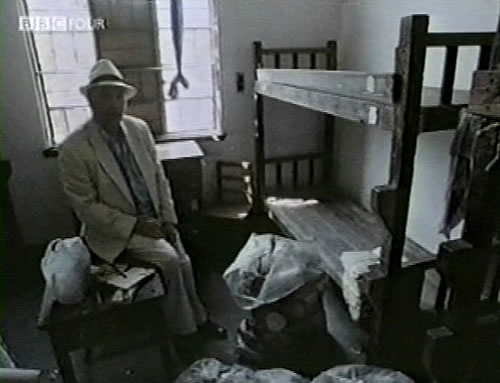“I keep trying to think what would have happened had the war not taken place. I would have gone on living here [at Amherst Avenue], and probably would have gone on living in Shanghai. So I see around me here a sort of alternate life that I never actually managed to live because of the war.”
Just came across this impressive website called Ballardian, devoted to all things J.G. Ballard.
The top item currently is a long review/reading of a 1991 BBC4 documentary called Shanghai Jim. I remember watching this documentary (quoted above), when it came out I guess, around the time they released The Kindness of Women. The frame for Shanghai Jim – which touches on events from Empire of the Sun – is that Ballard goes back to the city for the first time since just after the war – revisiting the camp in which he and his family were held, the house that they lived in and so on. There’s something very interesting about this process of return/revisiting, I think partly because going back to anything, is such an elusive experience, and because it’s so very resistant to capture, especially in the visual field. I mean what part of that complex, webbed, uncanny feeling of time-passed and time-collapsing can be captured on film? Very little, although David Lynch might get close to it, at least as on-form as he is Inland Empire. Even on the grainy youTube of Shanghai Jim though there is something extremely compelling about Ballard, in his super-well-spoken/unruffled/well-mannered way, navigating his way through the locations of his own past, sat out-of-place and out-of-time in his white blazer and his hat, top shirt-buttons undone, in the tiny room of Lunghua Camp’s G block in which he, his parents and his sister were interned for nearly three years. “This little room…” he says, looking around “..is in fact probably as close as I’ll ever come to home, surprisingly…“
